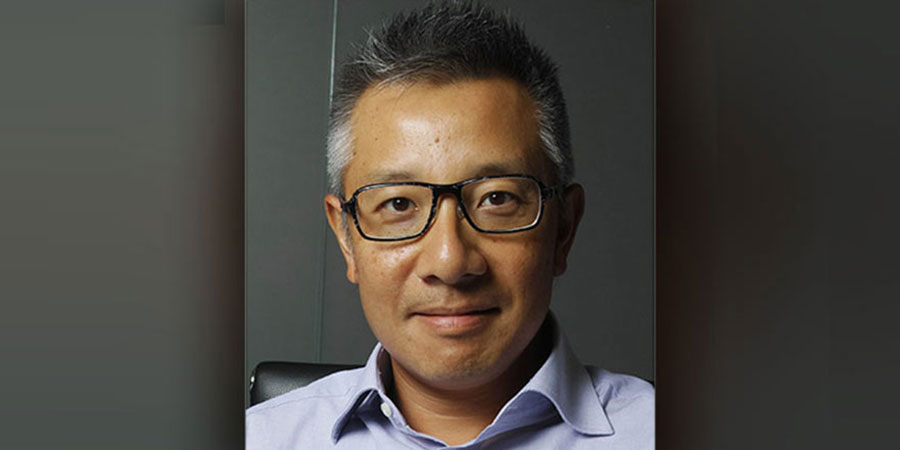As a leading communications service provider in Malaysia with the nation’s only all-IP; all-4G network, YTL Communications is committed to providing class leading mobile Internet services that are not only affordable, but as a platform to enable the next phase of telco evolution -- IR 4.0 and 5G network.
Telecom Review Asia sat down with YTL Communications’ visionary CEO, Wing K. Lee, at 5G Asia 2019 in Singapore to discuss the company’s plan to introduce 5G nationwide and how this technology can give Malaysian businesses an unrivalled edge in the market.
How closely are you working with customers in order to bring 5G to the Malaysian market?
We are working on numerous technologies; 5G being one of them, but certainly not the only tool in our toolbox. We are the first and still, the only all-4G network in Malaysia. A key principle behind the founding of our company is that we want to bring better connectivity to all Malaysians. For that to happen, it is important for us to have a big enough toolbox to serve a variety of deployment scenarios. Aside from 5G, we are working on a number of existing technology such as a 60GHz gigabit wireless technology called Terragraph and an ITU-T G.hn technology called Gigawire the delivers fiber level speed over cooper networks.
Building a brand new all-4G network to help close the digital divide for Malaysia is a grand challenge and we stepped up to it. It helped that we are part of a large conglomerate (YTL Group) with deep experience in large scale infrastructure investments. Using our group’s resources, we built the first nationwide all-IP, all-4G network. And we are proud to say that we are still the only all-IP, all-4G network in Malaysia.
After all, 5G requires a strong 4G network. We have the only all-4G network in Malaysia. Others are still operating 3G and 2G technologies. It will be disingenuous for them to be claim to be 5G ready. There is simply no standard support for 5G to fall back to 3G or 2G.
We believe the initial wave of demand for 5G will come from industries as they prepare for IR 4.0. But IR 4.0 is not just about the network. It also requires business process and human capital reengineering not to mention tight integration with sensors, AI and robotics. Ultimately, what brings all these together go well beyond networks. We are proud to have our own system integration capability along with our own private cloud to ensure the workload is secure and data sovereignty is protected. More than ever, as mission critical operations become connected and automated in the era of IR 4.0, the industry needs to level up from being just a pipe provider. We have a head start and hope to share more with your readers in the future.
Has government support or initiatives helped bolster the presence of 5G in the region or do you think that more can be done?
The Malaysian government has done a wonderful job under the leadership of our Minister of Communications and Multimedia YB Gobind Singh and our regulator the Malaysian Communications and Multimedia Commission (MCMC) to really push the agenda and to put Malaysia on the map when it comes to energizing the country to be a 5G champion in the region.
I don’t think that there is a lack of awareness of 5G in Malaysia as a result of the good work done by the government. However, we still have some work to do to create the pre-conditions for successful 5G deployment.
During your panel discussion on “Defining the 5G killer app in Asia” at 5G Asia 2019 in Singapore, you mentioned that it would not be cost-effective to scale 5G nationwide just yet. Could you please elaborate a little on that?
In the telecoms business, regardless of whether you’re in fixed line or wireless business, the most important economic lever that one must master is unit cost management. The telco business is a scale based business. If you don’t have the right unit cost, you’re going to scale the company to death. In my opinion, where we are with the 5G S-curve (product lifecycle), we’re still at the very early stage.
In any S-curve for a product or technology, the unit cost will be the highest in the early stage. If you lock yourself into this high unit cost now at a national level, then the unfavourable economics will burden the business going into the future. We have to be careful to not introduce new technology at the wrong unit cost relatively to market readiness.
For the benefit of our readers, could you please outline how technology companies like YTL are reviving their own business model to cater to the Malaysian market?
This is an interesting point because we, as a technology company, should work hard to stay current. As an operator, it’s our job to provide the best service using the resources that we have. What I’d like to highlight are issues shared by many counties. There are a few things that the industry would like to see regulators help enable; and to create that opportunity for us to invest and; to grow our investment.
There are three fundamental points.
Firstly, the industry would like to see clear and stable policies that would encourage long term investments, because building a nationwide network is a very costly endeavour. Regulatory certainty in things such as spectrum policy are of utmost importance because spectrum is a vital resource to any mobile telco.
Secondly, the new paradigm of employing higher frequency spectrum in 5G will require more sharing of infrastructure and assets. Another important infrastructure when it comes to sharing is fibre. I think the regulator could help make sure there is good reach and the enforcement of open access wholesale framework.
Thirdly, the regulator could help create a framework to expedite site access or right of way. In many places not just in Malaysia, it could take months or quarters to get a single site built. With 5G, we need more sites to densify still. This could quickly become a hindrance.
These are the three fundamental points that we think regulators around the world must do well in order to encourage companies to have the fortitude to invest in the size of hundreds of millions of dollars. We are fortunate to have a progressive government here in Malaysia. And we look forward to working with the rest of the industry to bring better Internet service to enable Malaysia’s digital economy.







